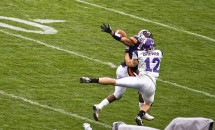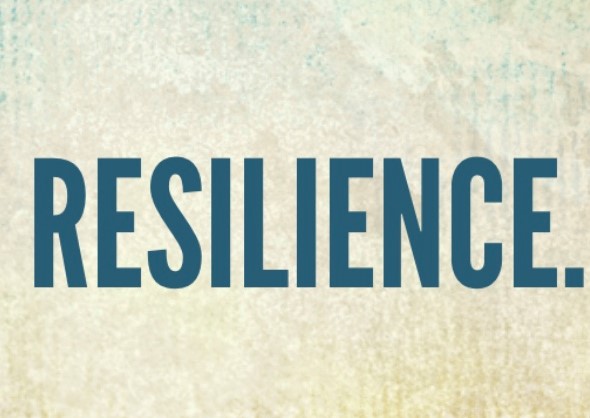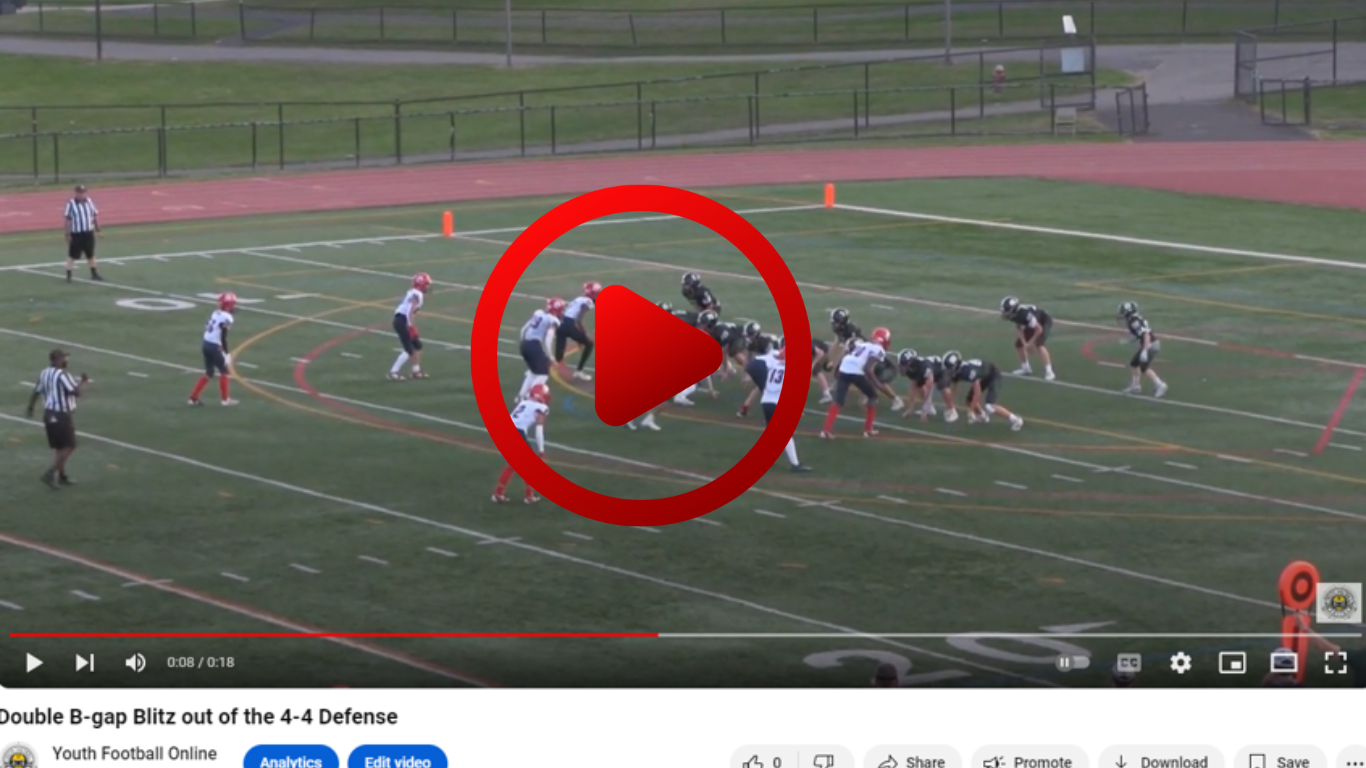Pass Interference Penalty in Youth Football

Pass Interference Penalty in Youth Football
(Written by Referee Insider Steve Wells)
Offensive Pass Interference at the Youth Football level is one of the toughest calls for a referee to make or not make. At higher levels it there are rules about whether the ball is catchable. Usually, youth leagues don’t have those rules. Whether that makes sense or not is up to the coaches (Did you know coaches make the rules in committee, not referees?)
Offensive Pass Interference
This call is blown more than any other. The restrictions for offensive players begin at the snap. The theory is that they know it will be a pass play. So why is this call missed so much?
Tight Ends.
Tight Ends and Wide Receivers can block, but only in and behind the Expanded Neutral Zone. The Expanded Neutral Zone is 2 yards beyond the line of scrimmage and cannot extend into the End Zone. On a normal running play the initial charge of the Tight End is not a problem. The ball will not be thrown and they usually help on defensive ends, linebackers and defensive backs.
The issue with Pass plays is that Tight Ends are usually expected to run their route after they check off a blitz or help with a difficult to manage defensive end. So if that block takes him downfield and the ball is thrown beyond the line of scrimmage. He has committed Offensive Pass Interference.
In reality, this doesn’t happen when they help with an end and peel off if the QB scrambles. The trouble areas are short passes and screens that go beyond the line of scrimmage, because they take too long to develop.
All legal blocking by the offense or the defense is disregarded behind the line of scrimmage. A back can block a player to the ground and then go out for a pass as long as the contact is behind the neutral zone.
Note for Defensive Coaches: I will talk about this more later. Defensive players can get away with a lot more behind the neutral zone than I usually see them attempt. Legally blocking an offensive player is legal, even on screens. The defensive player cannot grab or hold, but he can engage by blocking or pushing the player. Rule 7-7 NFHS
To sum up: Offensive players cannot block downfield on a pass beyond the neutral zone. Offensive players can block downfield on passes behind the neutral zone.
Defensive Pass Interference
Defensive pass interference is very simple. Any defensive player contacting an eligible offensive receiver who is beyond the neutral zone a pass that travels beyond the neutral zone and is not tipped by the defense in or behind the neutral zone is pass interference unless the ball is touched beyond the neutral zone by a member of either team.
Okay, it is not that simple. So let’s break it down.
Passes Behind the Neutral Zone
All legal contact is allowed by both teams. No Pass Interference is possible. Contact a receiver too early on a pass to the flanker behind the line? Legal Play.
Passes Beyond The Neutral Zone
Pass interference restrictions for the defense begin once the ball is released. None of the stuff you see on Saturday or Sunday applies. Here is a list of things that do not exist (unless your local association adopts them):
- 5 yard zone
- No Advantage
- Turning head to see the pass and putting hand on receiver
- Catchable pass
The bottom line for Offensive coaches is that you must teach your receivers to avoid and run past defenders. If a receiver is front of a defender facing him, he is a potential blocker and can be legally blocked by the defender to the ground, anywhere on the field. If the pass isn’t thrown in the direction of the player, then contact by the defender is ignored even on a ball in flight.
To compensate for this, the coaches who write the rules do not make a determination on whether the ball was catchable. So any contact on the receiver that impedes his progress and is not a bona fide attempt to catch the ball is Pass Interference.
The Defender cannot:
- Go through the receiver to catch the ball.
- Push off while the ball is in the air.
- Turn and face the receiver and wave his arms to distract him.
- Commit Holding or a Personal Foul
If a receiver turns his back to wait for the ball, he cannot be hit in the back. He cannot be held going down field. While these may not be Pass Interference, they do carry the appropriate penalties and should be called for player safety. Although a good official will talk to a DB away from the play on a hold just like an offensive player.
Pass Interference is confusing. It is probably best talked about specific plays, so feel free to email questions.










